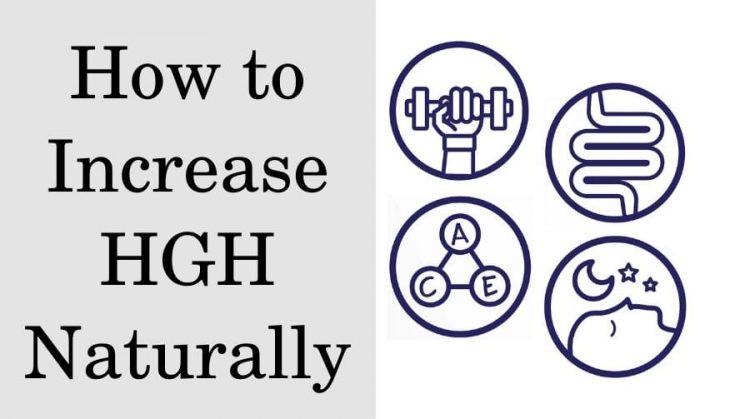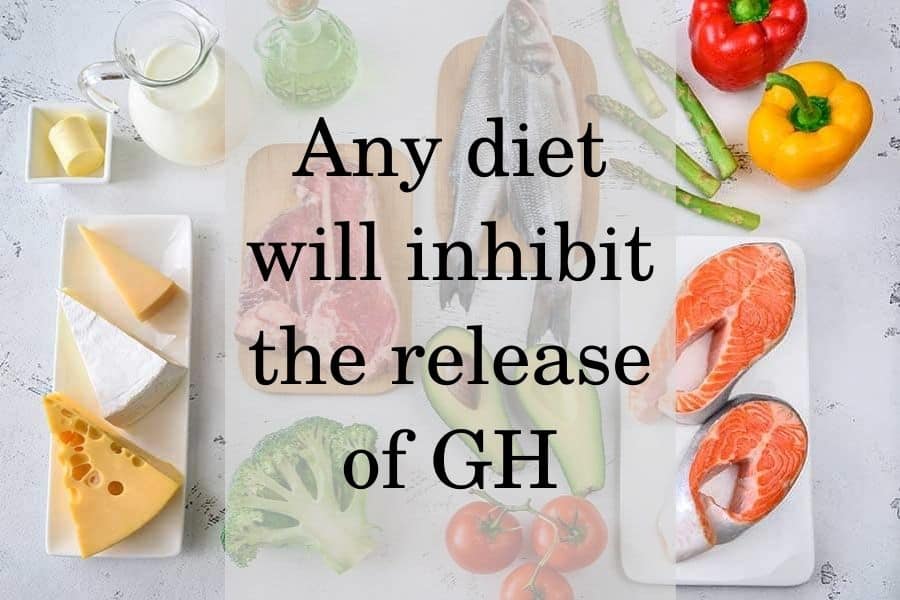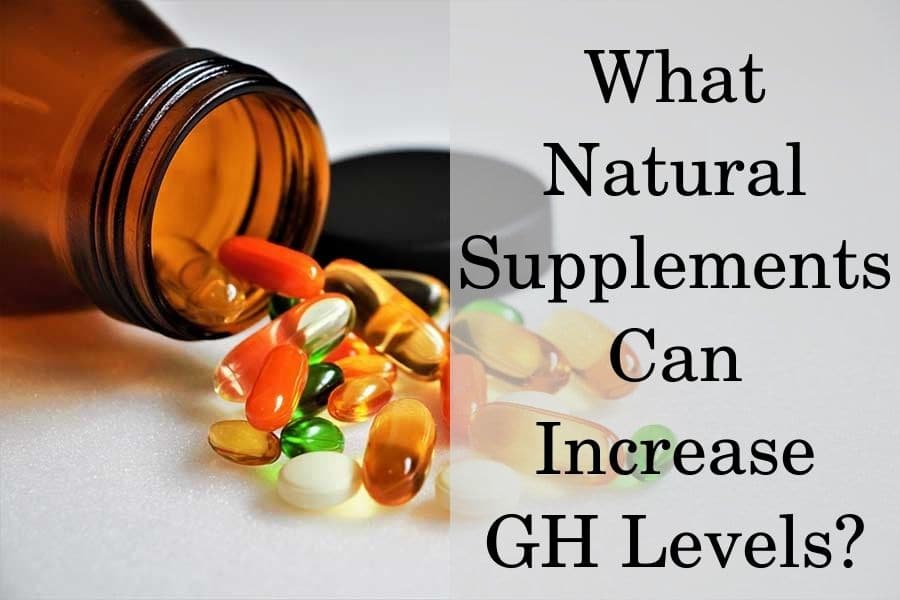
Your lifestyle can have a strong impact on your hormonal balance and overall health. For example, maintaining optimal growth hormone (HGH) is important since it supports your metabolism, energy levels, sexual function, and heart health.
Considering the benefits, the market is full of over-the-counter products and supplements claiming to boost your natural HGH production and restore your hormonal balance.
However, the only way to know what works and what doesn’t is to take a critical look at the available evidence. In this article, you will discover what to expect from the most popular methods for increasing your natural GH production.
Keep in mind that a natural method can be considered “effective“ only if you are healthy. For example, it may help you keep the optimal hormonal balance for as long as possible.
Yet, if you have a medical condition such as growth hormone deficiency (GHD) then you won’t experience any benefits. Instead, you should visit a medical doctor and receive proper treatment.
How to increase HGH naturally
Growth hormone in your body is produced by a gland in your brain called the pituitary. Its function is tied to another part of the brain called the hypothalamus, which links your nervous system to your endocrine system.
The hypothalamus produces both stimulants and blockers of HGH. The balance between these mediators is what determines HGH synthesis.
Factors that can affect the balance and stimulate a peak in GH levels include fasting, exercise, hypoglycemia, sleep, certain hormones, and other signaling molecules. In addition, another hormone called ghrelin can stimulate the pituitary gland directly via its own receptors, resulting in an HGH peak.
As an adult, you need adequate levels of HGH, since it plays a central role in the metabolism of your body, including:
- Stimulating cell repair and tissue growth
- Activating thyroid hormones
- Burning abdominal fat
- Preserving muscle
- Increasing calcium retention and bone mass
Unfortunately, the levels of GH decline gradually as you age, starting as early as your 20s and 30s.
Average decline in men is about 14% per year
Stopping the process is impossible but some of the factors discussed below may help to slow it down. Lifestyle changes that play the most significant role in HGH secretion include lowering your body fat percentage.
For example, studies reveal that the person’s body composition and most specifically abdominal body fat is one of the best predictors of individual GH levels.
Losing extra belly fat is shown to significantly improve HGH release in previously obese individuals. Furthermore, maintaining low body fat will improve your GH levels in the long term, unlike other short-term solutions that induce transitory HGH spikes.
Don’t be fooled by diets
Consuming food that contains carbohydrates and/or protein naturally leads to an increase in blood sugar levels.
The increase in blood glucose stimulates the release of inhibitory mediators from the hypothalamus (somatostatin) and inevitably suppresses GH levels.
But contrary to popular belief, reducing the amount of carbohydrates and sugar in favor of other nutrients in your diet is not going to boost your growth hormone.
Studies report that low-carb and ketogenic diets don’t have any short-term benefits on HGH production. Long-term benefits are yet to be studied.
Furthermore, trials reveal that increased levels of fatty acids in the blood, such as after consuming a high-fat meal, also appear to suppress natural GH production.
Therefore, no matter whether your diet is high in proteins, fats, or carbohydrates, eating a meal is going to inhibit the release of growth hormone. In addition, alcohol consumption leads to an additional acute suppression of HGH synthesis.
One study investigated the benefits of different macro-and micronutrients on GH levels in men and women. Sources of vitamin C were the only food group with a positive effect on growth hormone secretion. However, the exact mechanism is not clear yet and any theories are largely speculative.
Try different types of fasting
Fasting rather than consuming any specific food appears to be the most effective dietary intervention to increase HGH levels.
One study reported that a 24h fast led to a 2-fold increase in HGH production in healthy men. Fasting for 2 whole days (56h in total) led to a 5-fold increase. Both the amplitude and frequency of growth hormone peaks increased.
One of the most popular dietary approaches to incorporate abstaining from food is called intermittent fasting (IF). The diet is based on restricting your time for eating either down to several hours a day or several days per week.
A trial investigating the effects of a single-day water-only fast revealed that the intervention led to a dramatic increase in GH levels for both men and women. The increase was more significant in males compared to females.
There are also extreme options that restrict water intake as well. However, dry fasting lacks any additional benefits or scientific support, while it may pose significant health risks.
Examples of IF regimes that incorporate whole-day fasting are 5:2 and alternate-day fasting. However, the increase in HGH is short-lived and limited to the days you fast.
Prolonged periods of fasting may pose health risks and should be avoided
However, studies in mice reveal that IF also leads to a significant reduction in insulin-like growth factor 1 (IGF-1) levels. IGF-1 is the main mediator of the anabolic effects of HGH.
Therefore, IF likely suppresses the anabolic effects of HGH despite increasing its synthesis. Human trials with daily IF regimes (16/8) also report reduced IGF-1 as well as lower testosterone (T) levels.
Always consult with a medical doctor before you attempt fasting for weight loss or GH stimulation.
Exercise with high intensity
Physical activity can help you increase your GH levels both in the short and long term.
In the short term, working out can lead to a 4-6-fold increase in HGH synthesis and there are several studies to support it. The peak lasts only for the duration of the training session.
Furthermore, training and exercise increase your energy expenditure. Therefore, extra physical activity can help you achieve and maintain a caloric deficit and burn more fat, effectively raising your GH levels in the long term.
Activities involving higher intensity training lead to higher growth hormone peaks
These include anaerobic exercises such as sprinting, high-intensity interval training (HIIT), resistance training, and weight training.
On the other hand, aerobic and cardio training appears to be less effective. Trials also reveal that HGH release in men is much more responsive to exercise compared to women.
Improve your sleep quality
The majority of natural peaks in HGH synthesis occur while you are sleeping, more specifically before midnight and in the early morning.
Therefore, optimizing the quality and quantity of your sleep is vital for boosting GH levels. More specifically, GH release is highest during deep (slow-wave) sleep.
Sleep deprivation has a significant negative effect on your growth hormone levels. The hormonal synthesis is only partially compensated by increased HGH production during the day.
Factors that reduce sleep quality and deep sleep can significantly reduce your natural growth hormone synthesis. Examples include:
- Obstructive sleep apnea
- Insomnia
- Restless leg syndrome
- Acid reflux
- Chronic pain
In such cases, you should first consult a medical doctor who will prescribe you appropriate treatment for your main condition.
For example, studies reveal that continuous positive airway pressure (CPAP) treatment for obstructive sleep apnea is effective in improving sleep quality and increasing growth hormone production in those patients.
What supplements are effective in increasing HGH levels?
Several supplements are widely marketed as effective HGH boosters. The majority of them are amino acids, which are commonly found in food as the building blocks of proteins.
However, when taken separately as a supplement, certain amino acids act as signaling molecules for various receptors.
Amino acids
The most popular HGH boosting supplement is the amino acid arginine. Yet, studies report that the benefits of supplementation are short-term and there is no meaningful increase in GH levels in the long term.
Furthermore, arginine may actually attenuate HGH release if taken during training. The increase in HGH decreased from 5-fold down to 3-fold when arginine was combined with exercise.
Studies show that other amino acids such as ornithine, phenylalanine, and glutamine may have similar or weaker short-term effectiveness to arginine.
Other combinations such as arginine with lysine have also been tested, but have failed to show any effect on GH levels.
Another sports supplement that is commonly marketed as an HGH booster is the amino acid beta-alanine. However, the majority of studies fail to prove any effect when compared to placebo.
Melatonin
The hormone melatonin is a popular sleep supplement, which is also considered an HGH booster. Evidence suggests that there is some beneficial effect after taking melatonin, but it is relatively low, and likely due to improved sleep.
One supplement shown by studies to reliably increase short-term HGH release is alpha-glycerylphosphorylcholine (α-GPC). Unfortunately, the effects are once again too short-lived to have any significant benefits.
In terms of vitamins and minerals, the vitamins from group B could stimulate the pituitary gland naturally. For example, one study found that intravenous administration of vitamin B6 led to a short-term 3-fold increase in GH levels.
Does testosterone increase HGH?
It is unknown whether having naturally higher testosterone levels correlates with having higher GH levels.
However, the use of exogenous T, such as during testosterone replacement therapy (TRT) may stimulate growth hormone production. Evidence reveals that the TRT leads to higher HGH release peaks, which also results in elevated IGF- levels.
The most effective method to raise naturally HGH and T levels simultaneously in case you are overweight or obese appears to be losing body fat. One study reported that as a group of overweight men lost about 17 pounds (8 kg) over the extent of 12 months, the prevalence of low T was reduced by half.
However, there is a threshold to the T-boosting benefits of fat loss. Losing too much body fat too quickly may actually lower your T levels. Trials show that losing as much as 8% of your body weight for 2-3 weeks reduces testosterone.
These negative effects may occur due to the significant loss of lean body mass that accompanied the quick fat loss, as well as the extreme dietary restrictions involved.
Make sure to lose weight gradually and avoid extreme energy deficits in order to boost both natural HGH and T levels
What about other natural ways to stimulate GH secretion?
Scientists have also explored some rather unconventional methods, in the hope to find a simple and effective method to stimulate the release of HGH.
Examples include exposure to sound, heat, different medications, and herbs. Not all seem to be effective, while others require more research before we can draw a conclusion.
Binaural beats
Binaural beats is a technique that requires you to listen to two tones separately, one through each ear with slightly different frequencies (less than 30Hz). These beats can create an auditory illusion – your brain starts hearing a third tone, which is equal to the difference between the two.
Studies suggest that binaural beats can induce feelings of relaxation, ease anxiety and improve sleep. Therefore, the method is often considered a potential HGH booster.
Yet, there is not a single study to support that binaural beats may help activate your pituitary gland release more growth hormone.
Sauna
There is some evidence that saunas may be able to induce a short-term increase in GH levels, likely due to the body’s exposure to stress. However, the research is scarce and unreliable.
Sitagliptin
Another common misconception is that a medication used for the treatment of type 2 diabetes called sitagliptin may boost HGH. Studies show that the medication may lead to a short-term increase in GH levels, but only in women.
Considering the fact that the evidence is scarce and this prescription medication can have serious side effects, you should be aware that sitagliptin is not a safe and reliable method to stimulate growth hormone secretion.
Herbs
One animal experiment has suggested that a Chinese herb called cistanche may stimulate HGH by triggering the ghrelin receptor. However, the effects of the herb have never been evaluated through clinical testing, so its safety and effectiveness remain unknown.
Another Chinese herb studied only in animals is called tokishakuyakusan. It may have an effect on stimulating intrauterine levels of growth hormone in mice. Yet, we have no data on what results to expect if used in human adults.



 Request Appointment
Request Appointment








